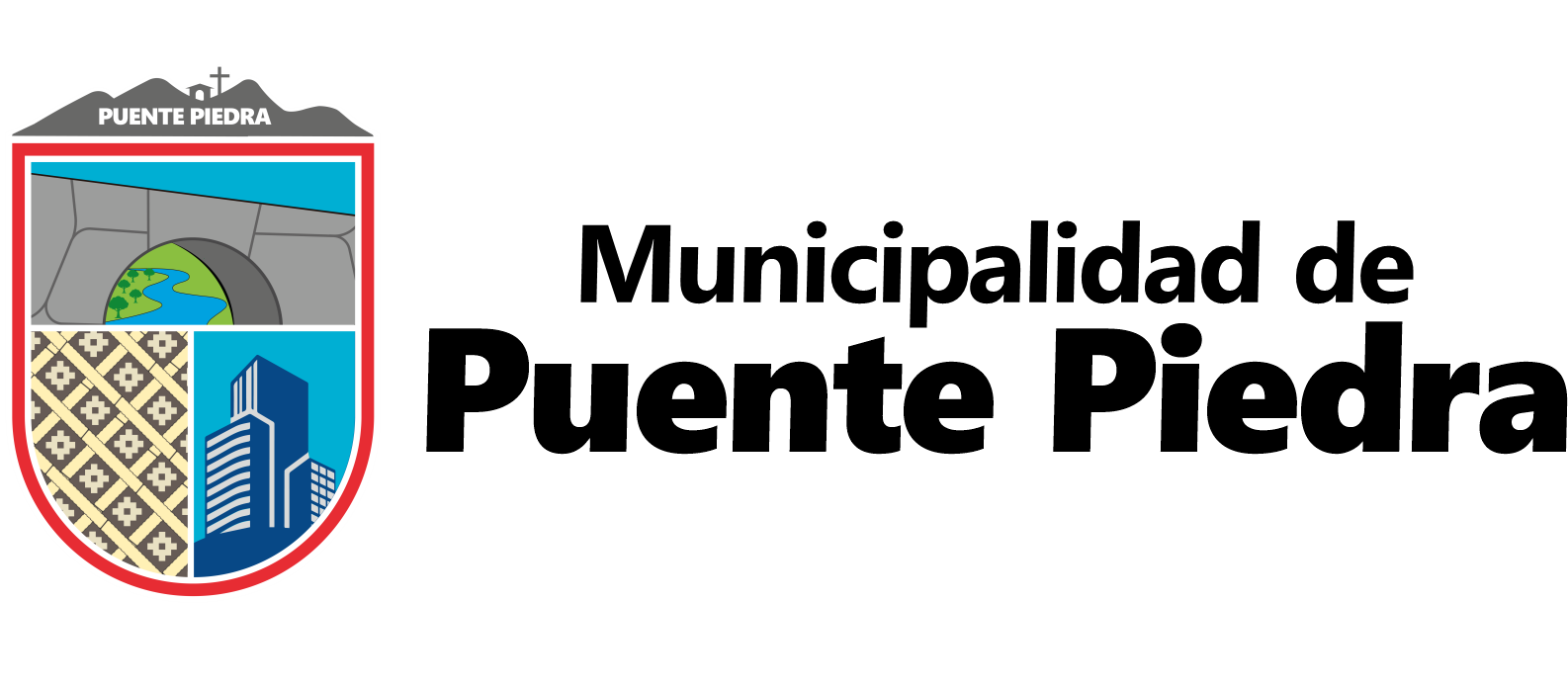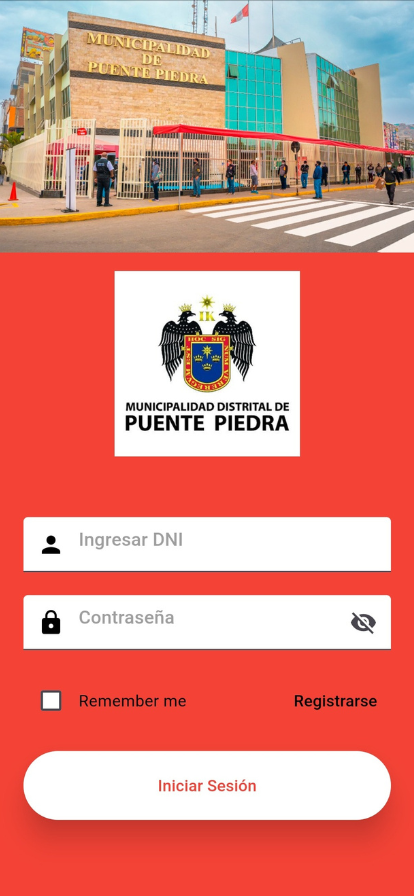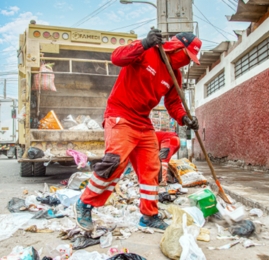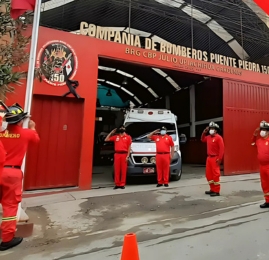Prevention Management
Deputy Manager of Food Programs
The Deputy Manager of Food Programs is the organic unit in charge of programming, executing and controlling social programs and the promotion of the rights of children, adolescents, women, elderly and disabled people, as well as services for the prevention, rehabilitation and fight against drugs. It reports to the Prevention Management.
According to the functions established in the Regulation of Organization and Functions (ROF) of the District Municipality of Puente Piedra, the Health Management develops various actions, activities and projects, in order to meet the institutional goals and objectives.
Funciones
a) Formulate, propose and implement standards for social programs, ensuring the quality and targeting of services, equal opportunities and the strengthening of regional and local economy.
b) Execute the State’s own and transferred local poverty alleviation and social development programs, ensuring the quality and targeting of services, equal opportunities and the strengthening of the regional and local economy.
c) To program, execute and control the programs of glass of milk, complementary feeding and similar, in accordance with the legal norms in force.
d) Coordinate the necessary actions for the maintenance and proper functioning of the facilities of soup kitchens, mother’s clubs, milk glass and other infrastructures.
e) To keep updated the information regarding the social and family lists of the beneficiaries of the food programs.
f) To implement and control the necessary actions for the protection, participation and organization of neighbors with disabilities, in accordance with the relevant regulations.
g) To promote and arrange public and private cooperation in the various local food programs.
h) Facilitate and participate in the spaces of agreement and citizen participation for the planning, management and monitoring of food programs, as well as support for the population at risk.
i) To establish channels of communication and cooperation between neighbors and food programs.
- j) To issue administrative acts within the scope of its competence.
k) Any others assigned by the Prevention Manager within the framework of his/her competencies or those corresponding to him/her by express regulation.
Glass of Milk Program
The Glass of Milk Program (PVL), is a social program created in January 1985 by Law No. 24059 and complemented by Law No. 27470, in order to provide a daily ration of food to a population considered vulnerable, with the purpose of helping them to overcome their food insecurity.
Beneficiaries
We have a total of 16,947 beneficiaries who belong to the vaso de leche program.
Collection center
We have 23 collection centers (distribution center) throughout the district
Committees
We have 457 milk glass committees.
Food basket
Mixed oat flakes, quinoa, Kiwicha, barley, Cañihua with precooked flaxseed and chia flour mix enriched with vitamins and minerals (500 gr)
Evaporated whole milk (410 ml)
Food ration
21,4 gr – Mixtures of oat flakes, quinoa, Kiwicha, barley, Cañihua with mix of flaxseed and chia flours precooked enriched with vitamins and minerals.
48 ml – Evaporated milk
Mayor:
Mr. Rennan Samuel Espinoza Rosales
Deputy Manager of Food Programs:
Three representatives of Grassroots Social Organizations: Ms. Juana María Echevarría Zapata de Villar
Mrs. Jackeline Aguirre Garria Mrs. Vicky Rubina Agurto
Ministry of Health:
Lic. Nut- Carmen Piñas Ynga
Assoc. From Agricultural Producers María Salomé Gamarra Jihuaña
Normativa: Ley 27470
Food Supplementation Program - Popular Soup Kitchens
Peruvian soup kitchens emerged in the 1960s and 1970s as a survival strategy in urban areas. Currently, within the Food Complementation Program (PCA), they have become grassroots social organizations that, in alliance with the State, offer low-cost food to vulnerable populations.
Food Basket
Rice, Vegetable Oil, Menestras: (Castilla Beans, Panamito Beans, Pallar, Canary Beans, Lentils, Black Beans), Animal Protein: (Eggs, Canned Whole Anchovies in Tomato Sauce, Frozen Tripe, Frozen Chicken Legs, Frozen Chicken, Frozen Lung and Turkey Medallions).
Collection center
We have 7 collection centers
Center of attention
Beneficiaries
Management Committee
- Lic. Zaida Lisette Castilla Aquino, representative of the District Municipality of Stone Bridge, as president of the CGL of Store Brige.
- Ivan Yamil Saturno Chavez, representative of the District Municipality of Stone Bridge, as secretary of the Puente Piedra GLC.
- Mrs. Maximiliana Eulogia Ochoa Pariona, representative of the OSB Asociación Coordinadora de los Clubes de Madres y Comedores Populares de Stone Bridge, as member of the CGL of Stone Bridge.
- Mrs. Martha Rosa Peralta Panduro, representative of the management committee of the OSB Coordinating Association of Mothers' Clubs and Soup Kitchens of Stone Bridge, as member of the GLC of Stone Bridge.
- Mrs. Luz Iris Soledad García Cuadros, representative of OSB Self-managed canteensde Stone Bridge, as member of the GLC of Puente Piedra.
- LIC. Rocio Isabel Montellanos Rivas Representative of the Ministry of Health.
Normative: Ministerial Resolution N°041-2022 – MIDIS.
Food Supplementation Program - Common Pots
Ollas Comunes are a community initiative in Peru to address the food needs of populations in poverty and extreme poverty, especially during the food crisis caused by the COVID-19 pandemic. In Stone Bridge, this mechanism was strengthened with the approval of Municipal Ordinance N°389/MDPP on November 30, 2020, which established its recognition and municipal registration during the state of national emergency.
Food Basket
Rice, Oat Flakes with Quinoa, Oat Flakes with Kiwicha, Lentils, Split Peas, Noodles, Vegetable Oil, Blonde Sugar, Canned Fish in Vegetable Oil, Reconstituted Milk Product.
Collection centers
Center of attention
Beneficiaries
Plans to be Developed by the Food Programs Sub-management
Workshops for the Development of Food Products "Women of Iron"
The ‘Women of Iron’ program in Stone Bridge will train more than 2,500 women in the production of safe, nutritious, and profitable food products. Through practical workshops and talks on balanced nutrition and entrepreneurship, participants will learn to produce a wide variety of foods such as nectars, preserves and jams from more than 20 fruits and vegetables without preservatives and preservatives.
Workshops for the Development of Food Products "Women of Iron"
The ‘Women of Iron’ program in Stone Bridge will train more than 2,500 women in the production of safe, nutritious, and profitable food products. Through practical workshops and talks on balanced nutrition and entrepreneurship, participants will learn to produce a wide variety of foods such as nectars, preserves and jams from more than 20 fruits and vegetables without preservatives and preservatives.

Healthy and Balanced Eating Plan "Rennán Nourishes You"
The plan seeks to promote healthy and balanced nutrition in Stone Bridge, improving the health and well-being of children, youth and adults, and reducing problems such as overweight, obesity and anemia. To this end, cooking workshops and practical demonstrations will be implemented in alliance with the SISE Institute, using its haute cuisine classroom.
Activities include:
- Preparation of healthy dishes published weekly in municipal social networks.
- Face-to-face trainings at the Palace of Culture, with more than 60 participants per session.
- Talks and live demonstrations in schools.
The plan has more than 100 recipes to benefit the entire population of the district.









